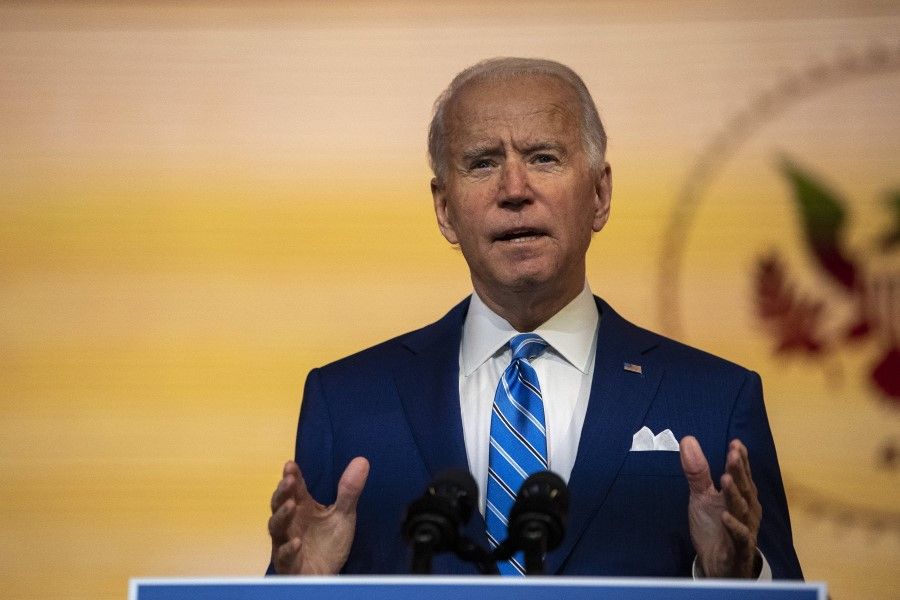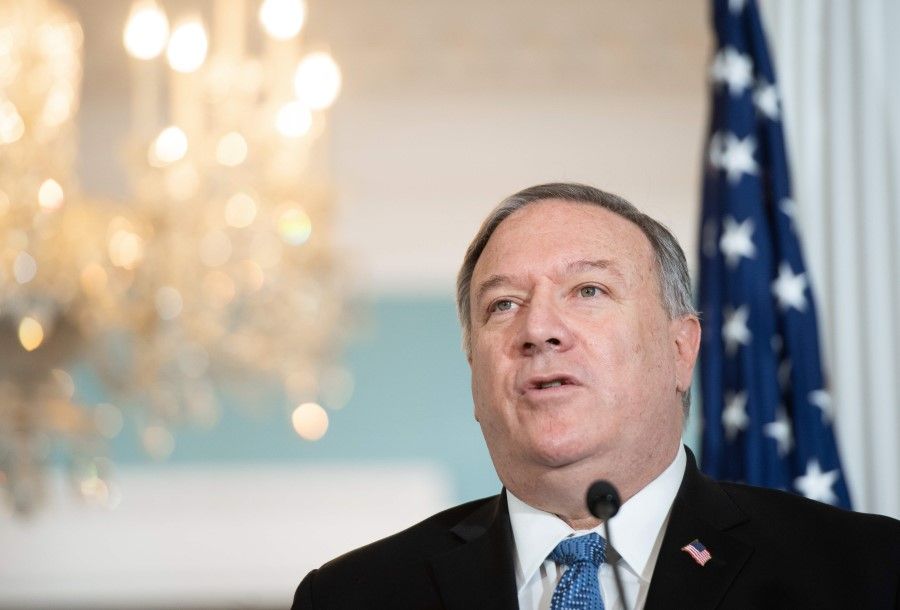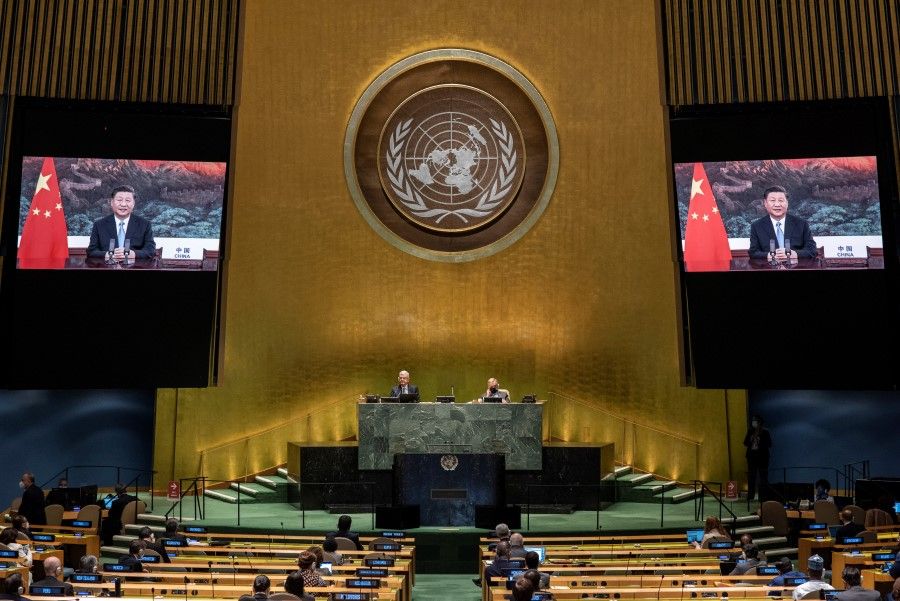America and Europe are coming together against China, but will it work?

In 2013, China called Joe Biden an "old friend". However, he is currently taking a tough stand on China. And this change in attitude is because national interests trump personal feelings, leading to Biden going from "China is not competition for us" to "the United States does need to get tough with China".
Biden is talking about joining with US allies against China. On 16 November, Biden said, "We need to be aligned with the other democracies - another 25% or more so that we can set the rules of the road instead of having China and others dictate outcomes because they are the only game in town." The allies Biden is referring to is mainly the EU. The Trump administration brought US-Europe relations to its lowest point, and so media announcements of Biden's win sparked hope among the EU countries of repairing relations with the US.
The US and the EU share similar gripes about China
US-EU cooperation is on firm ground. Both sides share common values, a shared economy, and similar political models. In the 70 odd years since World War II, the US and Europe have maintained the US-led international order, fostered military alliances to safeguard security, and shared a commitment for an open market which had shaped the international trading system. While there are sometimes conflicts of interests and ideas in US-Europe relations, both sides have a common goal to develop cross-Atlantic relations further. However, using that goal against China is unlikely to be very effective.
The US and EU joining hands against China is a legacy of the Trump administration that will have a strong imprint on Biden's policy towards China. In an interview with Le Figaro on 16 November while on a visit to Paris, US Secretary of State Mike Pompeo called on European allies to join with the US to stand up to China, claiming that "if we give up, one day we will find ourselves a colony of China's authoritarian regime, and no longer a partner".

The EU's desire to join up against China too is influenced by the Trump administration, whose policies towards China have changed the EU's ideas of China, and prompted the EU to agree with the Trump administration's assessment of China on issues such as the China-US trade war, the coronavirus pandemic, and Hong Kong.
In a tweet on 8 November linking to an interview with la Repubblica, Manfred Weber - chairman of the Group of the European People's Party (EPP Group), the largest group in the European Parliament - said: "We should offer President-elect Biden a new transatlantic partnership based on a trade deal and a common approach to China. We disagreed a lot with Trump's methods, but he was right on China. It is a strategic rival." He also said China is a "common political enemy" for the US and Europe.
A Deutsche Welle (DW) report on 18 November said a survey conducted by academics in September on 13 European countries revealed that German people generally did not have a good assessment of China - on a scale of 0 to 100, China scored 35.4...
On 13 November, EU High Representative for Foreign Affairs and Security Policy Josep Borrell wrote in a Project Syndicate commentary: "Europe has no problem with China's own economic development and the benefits this has delivered to its citizens. But we cannot allow China's international expansion to occur at the expense of our own interests and values. That is why we have settled on a dual approach, treating China as an important partner, but also as a competitor and a systemic rival." He also noted that "Joe Biden's election as the next president of the United States has raised hopes in Europe of putting the transatlantic relationship back on track".
Much effort expended to work together against China
On 17 November, the French and German foreign ministers Jean-Yves Le Drian and Heiko Maas wrote in the Washington Post: "With Biden, greater transatlantic unity will be possible with regard to autocrats and countries that seek to enhance their power by undermining international or regional order. But a principled approach does not exclude dialogue and cooperation."
A Deutsche Welle (DW) report on 18 November said a survey conducted by academics in September on 13 European countries revealed that German people generally did not have a good assessment of China - on a scale of 0 to 100, China scored 35.4, which was lower than Japan at 55 points, and Taiwan at 46.4. Germany rated the US slightly higher than China, at 39.2 points. Over 46% of German respondents said their views of China had become more negative over the past three years, while 62.5% did not trust China, higher than Russia at 60.1%.
... nearly 50 and 170 telecommunications companies had joined the Clean Network programme, including 27 out of 30 NATO members and 26 out of 27 EU members.
The idea of the US and EU joining forces against China is not something new from Biden. Trump ruined relations with Europe, but that does not mean the Trump administration did not see the effect of coming together against China. In fact, the Trump administration has done all it can to this end, as shown by the following examples.
The first example is Huawei. The fact that many European countries are letting go of Huawei's 5G telecommunications facilities has a lot to do with the persuasion of US Secretary of State Mike Pompeo. On 24 June, Pompeo said that the Czech Republic, Poland, Sweden, Estonia, Romania, Denmark, Latvia, and Greece would not be using Huawei. Of course, the fundamental reason for this is the balance of pros and cons for these countries.

On 5 August, Pompeo announced the Clean Network initiative. This includes Clean Carrier, "to ensure that People's Republic of China (PRC) carriers are not connected with US telecommunications networks"; Clean Store, "to remove untrusted applications from US mobile app stores", including PRC apps that "threaten our privacy, proliferate viruses, censor content, and spread propaganda and disinformation"; Clean Apps, "to prevent untrusted PRC smartphone manufacturers from pre-installing - or otherwise making available for download - mobile apps on their apps store"; Clean Cloud, "to prevent US citizens' sensitive personal information and our businesses' most valuable intellectual property... from being stored and processed on cloud-based systems accessible to our foreign adversaries" through companies such as Alibaba, Baidu and Tencent; and Clean Cable, "to ensure the undersea cables connecting the US to the global internet are not subverted for intelligence gathering by the PRC at hyper scale".
On 10 November, Pompeo said nearly 50 and 170 telecommunications companies had joined the Clean Network programme, including 27 out of 30 NATO members and 26 out of 27 EU members. These countries also joined the Clean Network programme after weighing the pros and cons.
The second example is the joint statements by the US, Japan, and Europe. During the China-US trade war, several joint statements were released in an attempt to change the global rules on industrial subsidies, in order to limit what they consider to be China's efforts to distort international trade. The trio's aim is to propose to the other World Trade Organization (WTO) members stricter regulations on industrial subsidies and state-owned enterprises, and to start adopting these regulations in negotiations.
Working together against China easier said than done
However, US Trade Representative Robert Lighthizer wrote in Foreign Affairs in a July article "Trump's Trade Policy is Making America Stronger" that the US has been working closely with its allies, but "where China is concerned, the interests of the United States and its allies are not necessarily aligned", and "getting US allies to take bold, concerted action is easier said than done".
Indeed, it is difficult for the US and EU to join hands against China and achieve real results. Right now, Biden and the EU seem to be confident that they can work together to handle China, by containing it with international rules under the framework of multilateralism, and that eventually, they will be able to change China. But history has proven that this fantasy is doomed to failure.
China's motto is: "What should be changed and can be changed, we will change; and what should not be changed and cannot be changed, we will not."
Take the joint statements by the US, Japan, and Europe. Can they become WTO rules? The answer is: "Definitely not." At the WTO, a platform for multilateralism, the Doha Round of trade talks started in 2001 did not result in a trade liberalisation agreement, and nearly 20 years of negotiations have failed to produce tangible results. It is a joke for the US, Japan, and Europe to want WTO members to accept rules targeted at China.

Why is it a joke? Just take a look at the conflict between the East and West on human rights at the UN. On 6 October, the permanent representative of the German Mission to the UN delivered a joint statement on behalf of 39 countries including the US, the UK, France, Germany, and Japan, calling on China to uphold autonomy in Hong Kong and respect human rights in Xinjiang and Tibet. At the same time, Zhang Jun, China's permanent representative to the UN, spoke on behalf of 26 countries including Russia, North Korea, Venezuela, and Zimbabwe, criticising the US and Western countries for imposing unilateral sanctions that violate human rights in ways such as restricting access to medical resources amid the pandemic.
The era of the West using international rules to try to contain and change China is past. China's determined path of socialism is not bound by international rules. The latter has been adopted by China wherever possible, and if not, then firmly rejected. China's motto is: "What should be changed and can be changed, we will change; and what should not be changed and cannot be changed, we will not." China's pursuit of socialism was not guided by international rules.
There are many issues to be resolved between the US and EU, but it is not realistic to join hands against China. The EU is not a country; its policymaking mechanism makes it difficult for EU members to have aligned interests - Italy's participation in the BRI is an example of internal differences within the EU.
The EU and China are heavily dependent on each other in terms of their economies, and it is hard to imagine that the EU will take hard action against China. Biden's vision of the US and EU coming together against China sounds good, but it is in fact a rehash of Obama's legacy. Biden's old-style mindset suggests that he is unlikely to achieve much.
